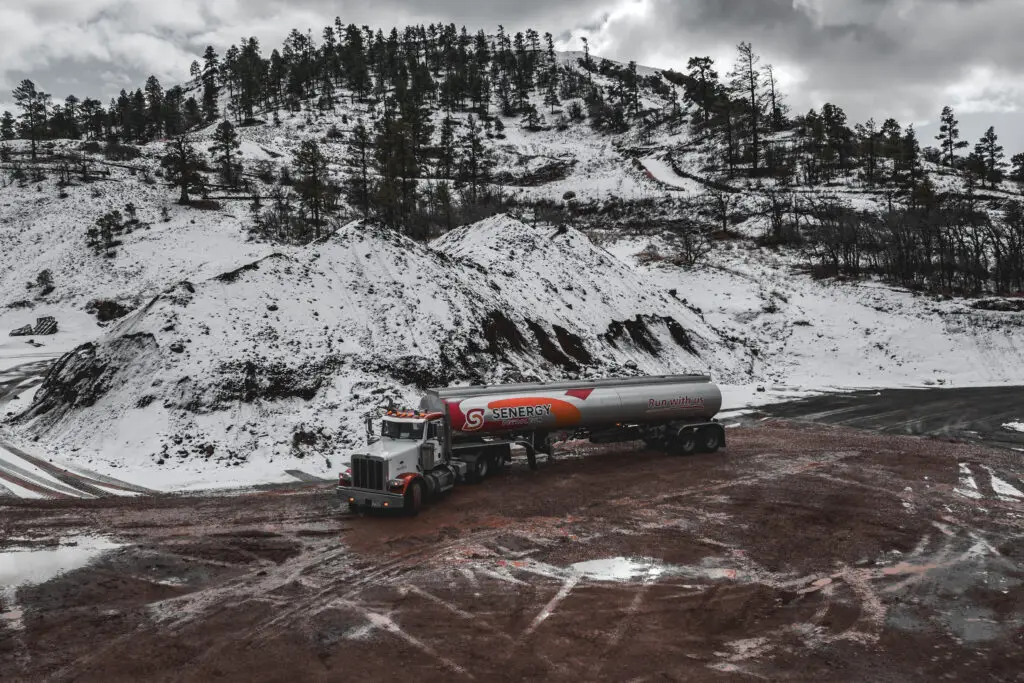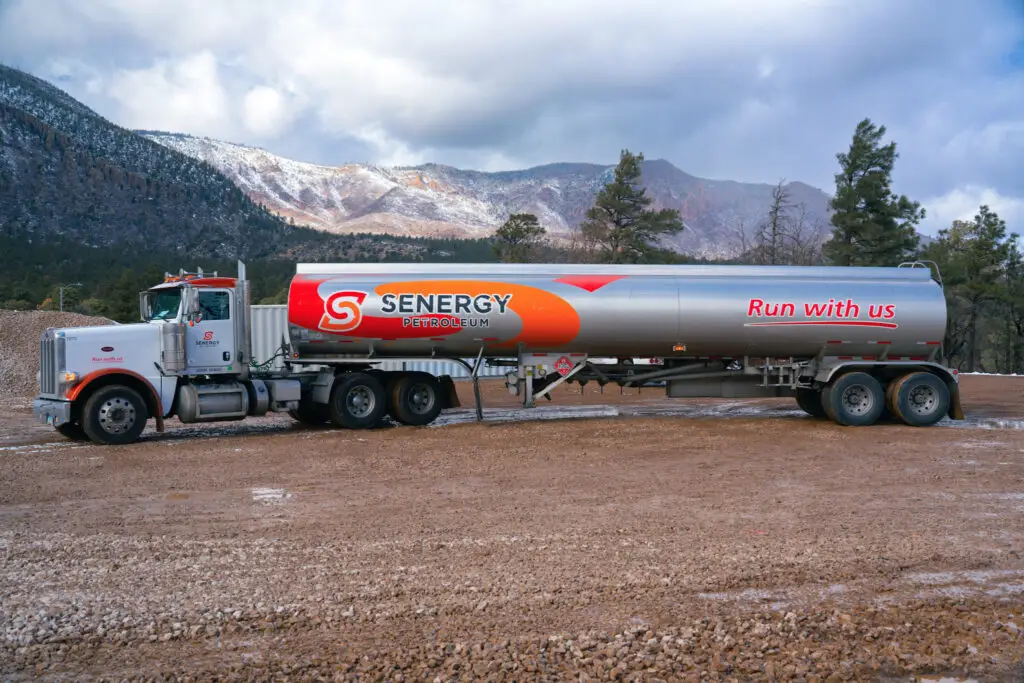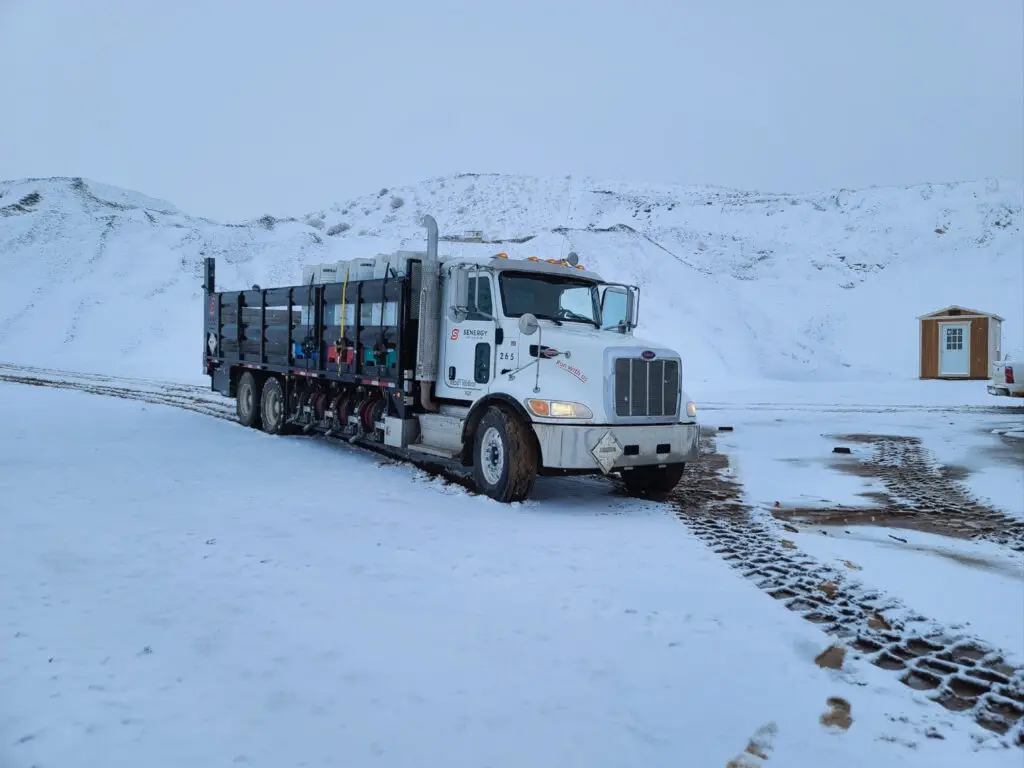Winter can be brutal on your equipment, especially in the Southwest and Rockies where temperatures can plunge unexpectedly. Antifreeze is your engine’s first line of defense, ensuring your fleet and machinery stay operational even in freezing conditions. Here’s what you need to know to protect your operations this winter.
Antifreeze isn’t just a convenience—it’s essential for keeping your equipment running smoothly through cold weather.
Without proper antifreeze, engines can freeze, crack, or fail entirely, leading to costly downtime and repairs.


Not all antifreeze products are the same. Selecting the right type for your equipment is critical to ensuring performance in harsh conditions.
Always check your equipment manual or consult a professional to ensure you’re using antifreeze that meets your engine’s specifications.
Proper antifreeze maintenance can make or break your winter operations.
Use a refractometer or test strips to measure the freezing and boiling points of your antifreeze. This ensures your engine is ready for winter’s worst.
Old or contaminated antifreeze loses effectiveness. Flushing your cooling system and refilling with fresh antifreeze can prevent unexpected breakdowns.
Look for puddles or sweet smells around your equipment—these are signs of antifreeze leaks that need immediate attention.

Even with the best preparation, issues can arise. Here’s how to handle them:
Antifreeze is essential, but improper handling can pose risks to people and the environment.
Take used antifreeze to a recycling facility or hazardous waste center to prevent environmental contamination.
Winterizing your fleet and machinery starts with antifreeze. By choosing the right product, performing regular maintenance, and addressing issues promptly, you can keep your operations running smoothly all winter long.
Need help selecting or maintaining antifreeze for your equipment? Senergy is here to provide expert advice and top-quality products to keep your engines protected no matter how cold it gets. Reach out to us today!

